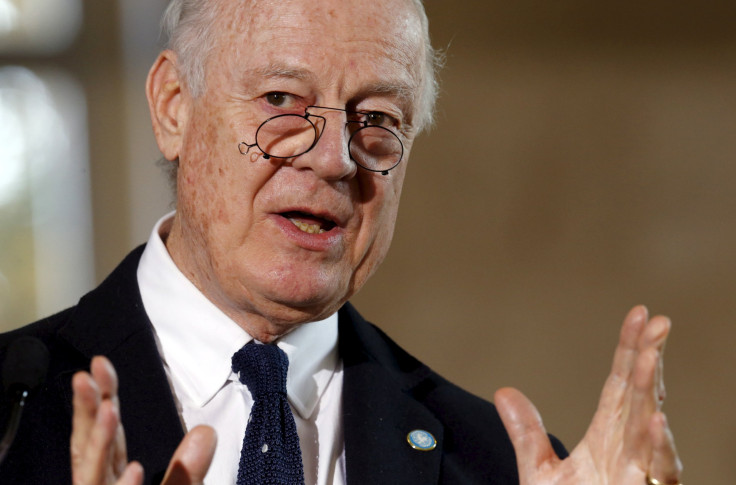‘Frustrated’ UN Syria Envoy Says Wake-Up Call Needed On Aid Access

The U.N. envoy for Syria said on Thursday he was frustrated that there was little improvement in aid deliveries to besieged areas, saying it was a "wake-up call" that had to be heeded.
The United Nations, which is mediating peace talks in Geneva, has been banking on an improvement in the humanitarian situation across Syria after a partial truce brokered by Russia and the United States in late February.
But with the "cessation of hostilities" increasingly shaky, aid access is beginning to drop off.
"(There is) disappointment, frustration indeed, particularly in this period when we are expecting incremental improvements in reaching places which are besieged," Staffan de Mistura told reporters after meeting envoys from countries which form part of the humanitarian taskforce.
He said the taskforce should take it as a "wake-up call to make sure we don't just sit passively during these meetings to acknowledge the fact that there are no improvements. We need improvements."
A document released to reporters from the U.N. Inter-Agency Humanitarian Operations showed that so far in April there had only been four aid operations and only 0.8 percent of people in besieged areas had been reached.
In comparison, during March some 19 operations reached about 21 percent of people in those areas.
De Mistura said there continued to be no access to Douma, Daraya and east Harasta - all near the capital Damascus.
Last week the U.N. said there was a plan to evacuate up to 500 sick and wounded people and their families from the towns of Madaya and Zabadani, close to the Lebanese border, and Foua and Kefreya, further north near Turkey.
However, de Mistura said he regretted that it had not happened because both sides were insisting only on exchanging a sick person if the other side also had a sick person.
"(My) proposal is that if you do have a case of medical emergency allow that (person) to be evacuated and when there is one on the other side then it can be equivalent," he said.
"If this is all blocked by reciprocity, then let's have a more creative reciprocity."
The U.N. is also concerned that surgical equipment is being removed from convoys, mainly by government forces, but de Mistura said he had received promises from the government.
"They assured me they were going to henceforth allow all medical items, except surgical items, atropine and anti-anxiety pills, but would allow on request caesarean surgery items and all other medical items.
"I hope what I got as a promise will materialize."
© Copyright Thomson Reuters 2024. All rights reserved.











